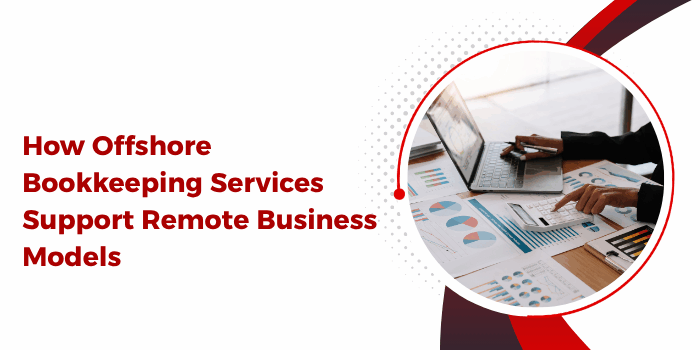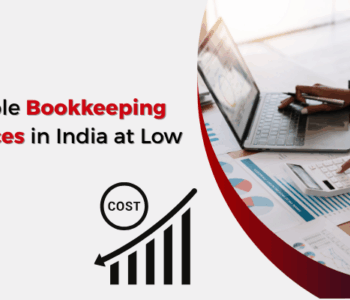 Business
Business
How Offshore Bookkeeping Services Support Remote Business Models
Remote-first businesses aren’t just a trend—they’re a transformation. But behind the scenes, managing financial records for globally distributed teams is a serious task. That’s where offshore bookkeeping services come in. By leveraging skilled professionals abroad, businesses can handle everything from payroll to taxes without sacrificing accuracy or efficiency.
What Are Offshore Bookkeeping Services?
Offshore bookkeeping refers to outsourcing accounting and financial tasks to service providers in other countries. These services typically include:
-
Recording daily transactions
-
Reconciling bank statements
-
Managing accounts payable and receivable
-
Generating financial reports
-
Handling tax compliance and payroll
These services are increasingly powered by cloud-based platforms like QuickBooks Online, Xero, and Zoho Books, ensuring seamless integration with remote workflows.
Why Remote Business Models Thrive on Offshore Bookkeeping
Distributed teams face unique financial management challenges. Offshore bookkeeping services provide a tailored solution to many of these obstacles:
-
Time zone advantages ensure that work progresses around the clock.
-
Reduced overhead costs free up resources for growth.
-
Specialized talent pools offer niche expertise not always available in-house.
For businesses without a central office, offshore teams function as virtual extensions of the finance department, delivering real-time support regardless of location.
Cost Efficiency Without Compromise
Let’s get real: Hiring a full-time, in-house bookkeeper is expensive. Between salaries, benefits, office equipment, and software licenses, the costs add up fast. Offshore bookkeeping offers:
-
Lower labor costs in countries like the Philippines, India, or Eastern Europe
-
Scalable services where you only pay for what you use
-
No infrastructure investment—the provider handles everything from software to hiring
That means even startups or solopreneurs can access top-tier financial management at a fraction of the cost.
Enhanced Accuracy and Compliance
Contrary to misconceptions, outsourcing doesn’t mean cutting corners. In fact, top offshore bookkeeping providers are:
-
Certified in international accounting standards (e.g., IFRS, GAAP)
-
Familiar with country-specific tax rules
-
Regularly audited and held to strict data privacy standards
Many offshore bookkeepers use double-entry systems and automation tools to reduce human error. Some even offer internal reviews, so your books are double-checked before submission.
Cloud Tools Make Collaboration Seamless
One reason offshore bookkeeping works so well for remote teams is the availability of robust cloud-based accounting software. With apps like:
-
QuickBooks Online
-
Xero
-
FreshBooks
-
Sage Business Cloud
-
Zoho Books
Remote teams and offshore bookkeepers can work from the same system in real time. No emailing spreadsheets. No version control issues. Just smooth, transparent collaboration.
Key benefits of cloud-based integration include:
-
Real-time financial dashboards
-
Easy document uploads
-
Secure user permissions
-
Mobile access for remote teams
-
Integration with CRMs, payroll systems, and bank feeds
Scaling with Flexibility
As your business grows, so do your bookkeeping needs. Offshore bookkeeping services are inherently adaptable:
-
Launch-stage startups can hire a part-time bookkeeper.
-
Growing companies can expand into full-service accounting.
-
Enterprises can integrate advanced financial analytics and CFO services.
Because most providers work on subscription or hourly models, you can increase or decrease service levels without the constraints of hiring or firing in-house employees.
Mitigating the Talent Shortage
Finding qualified bookkeepers in domestic markets is getting harder. Offshore bookkeeping services offer a way around this bottleneck by tapping into highly educated talent pools. Countries like India and the Philippines have accounting professionals fluent in English, trained in global standards, and equipped with specialized certifications (like CPA or ACCA).
Security and Confidentiality in Offshore Bookkeeping
One concern often raised about offshore financial services is data privacy. Leading providers address this with:
-
End-to-end encryption
-
Role-based access control
-
Confidentiality agreements
-
Regular security audits
These measures help ensure that your sensitive data—payroll, client info, bank statements—is always protected.
Supporting Business Continuity and Resilience
Offshore bookkeeping services can also act as a risk mitigation strategy. By diversifying where your financial team is based, you gain operational resilience:
-
Natural disasters or political events in one country don’t stop your business.
-
Offshore teams can pick up the slack during local holidays or workforce outages.
-
24/7 availability can support urgent financial reporting needs.
This level of continuity is invaluable for remote businesses where location-independent agility is key.
Tips for Choosing a Reliable Offshore Bookkeeping Partner
To make the most of offshore bookkeeping, choose a provider that offers:
-
Proven experience with businesses of your size and industry
-
Transparent pricing models
-
Strong communication practices with weekly or monthly reporting
-
Security certifications and compliance with GDPR or other frameworks
-
Positive client testimonials or referrals
Treat this as a long-term partnership, not a short-term task. A good offshore bookkeeping service becomes part of your operational backbone.
Final Thoughts
Offshore bookkeeping services offer far more than simple cost savings. For remote businesses, they unlock speed, accuracy, scalability, and peace of mind. With the right tools and partners, outsourcing your bookkeeping offshore becomes a strategic move that fuels growth while maintaining control.
Click here to read more articles: simplychiclife.com









